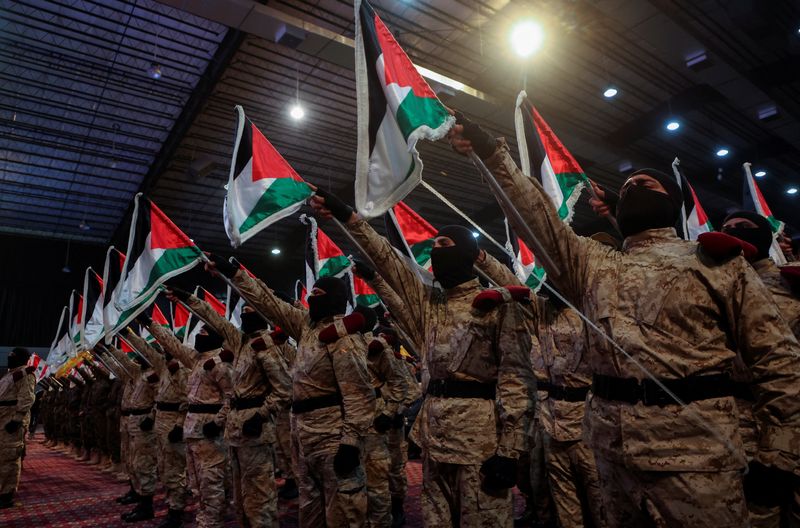The head of Hezbollah in Lebanon, Sayyed Hassan Nasrallah, declared that Israel’s recent strike on Iran’s consulate in Damascus was a significant event in the ongoing tensions in the region. This strike, which resulted in the death of seven Iranian Revolutionary Guards Corps members, including a senior Quds Force commander, Brigadier General Mohammad Reza Zahedi, has led to escalating regional tensions. Nasrallah stated that Iran has vowed to seek revenge for the attack and that a response against Israel was imminent. Israel has prepared for the possibility of retaliation by cancelling leave for combat units and mobilizing more troops for air defense.
Defense Minister Yoav Gallant addressed Israeli forces at an air base, stating that Israel was prepared to attack its enemies wherever necessary, whether in Damascus or Beirut. Israel is prepared with a multi-layered defense system to counter any potential threats. Despite the escalation in tensions, Iran has avoided direct involvement and has opted to support attacks on Israeli and U.S. targets through its allies in various countries in the region, including Lebanon, Syria, Yemen, and Iraq. While Iran has shown support for these attacks, it is believed that the country’s leadership is hesitant to engage in an all-out war that could threaten their hold on power.
Hezbollah, along with its ally Amal and Palestinian groups in Lebanon, have been engaged in conflicts with Israel along the southern border since October 8. In response to Israeli airstrikes on the town of Marjayoun, three Amal fighters were killed. Additionally, nearly 270 Hezbollah fighters have lost their lives during the ongoing clashes. Nasrallah emphasized that Hezbollah still has weapons and forces that have not yet been utilized against Israel, indicating that the group is prepared to continue engaging in conflict if necessary.
The recent events in the region suggest a deepening of hostilities between Iran, Hezbollah, and Israel, with the possibility of further escalation and retaliatory actions. The targeting of Iran’s consulate in Damascus and the subsequent threats of revenge highlight the volatile nature of the situation. Israel’s readiness to defend itself and its preemptive strikes indicate a willingness to confront any potential threats from its adversaries in the region. The involvement of multiple parties and the presence of various proxy groups further complicates the situation, raising concerns about the potential for a wider conflict.
The ongoing clashes and threats of retaliation underscore the complex power dynamics at play in the Middle East and the consequences of regional conflicts on a global scale. The involvement of Iran and its allies, including Hezbollah, in conflicts with Israel poses a significant challenge to regional stability and security. The use of proxy groups and tactical attacks by Iran suggest a strategic approach to confronting its adversaries while avoiding direct confrontation that could lead to a broader conflict. The situation remains fluid, with the potential for further violence and instability in the region as tensions continue to rise. Diplomatic efforts and international intervention may be necessary to prevent a full-scale conflict and mitigate the impact of the ongoing crisis.


